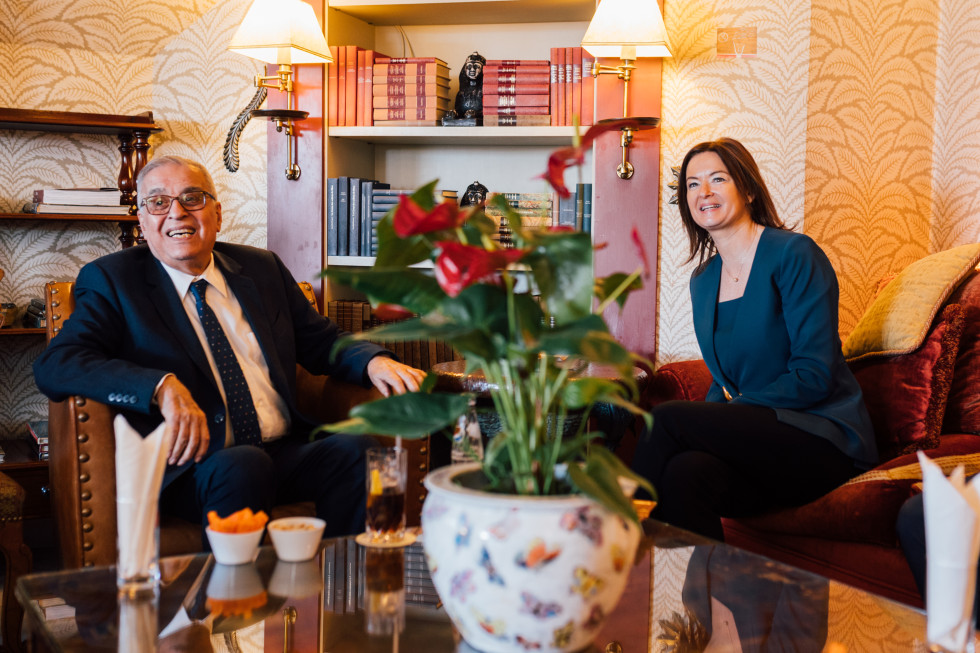Minister Fajon concludes her two-day visit to Lebanon

Minister Fajon in consultation with Foreign Minister Abdallah Rashid Bou Habib | Author Ministrstvo za zunanje in evropske zadeve
“Slovenia supports Lebanon in its political transition and in the delicate phase of a prolonged ceasefire. Maintaining peace is crucial for Lebanon and the region. There is a glimmer of hope that things are moving in the right direction, but in recent days, the US plans to take over Gaza and relocate the Palestinians have caused additional concern. Slovenia and Lebanon are working closely together, especially on development aid projects that help stabilise the situation and the return to normal life. Lebanon is very grateful to Slovenia for its help and solidarity, and for its constructive attitude in the UN Security Council,” Minister Fajon reported on the consultations in Beirut. She met with the newly elected President Joseph Aoun, President of the National Assembly Nabih Berry, Foreign Minister Abdallah Rashid Bou Habib and Prime Minister-designate Nawaf Salam. Minister Fajon reiterated her support for the United Nations Interim Force in Lebanon (UNIFIL), which is an important element of stability, especially in the south of the country, as well as for the United Nations Truce Supervision Organisation (UNTSO), which currently has two Slovenian observers.
In Beirut and the surrounding area, Minister Fajon visited three humanitarian project sites that receive financial support from Slovenia. She visited the Lebanon Mine Action Center (LMAC), which Slovenia has been supporting for several years in cooperation with ITF Enhancing Human Security. Cleaning up areas contaminated with explosives is crucial for the security of the Lebanese people. Minister Fajon declared future support to the Centre with demining and psychosocial support for victims.
The other two projects focus on supporting vulnerable groups, particularly women and children, who have traditionally been at the forefront of Slovenia's development and humanitarian efforts. During her visit to the safe house for women victims of sexual violence, the Minister heard the moving stories of women who have turned to the safe house for help. With the support of Slovenia and in cooperation with Caritas Slovenia, the women receive comprehensive care and much-needed legal, health and psychosocial support.
Minister Fajon also visited the school where, with Slovenia's help, activities are organised for women who have been victims of violence and their children. The Lebanese NGO Naaba, with the help of its Slovenian partner, Institute Circle, offers psychosocial help, support and care for women and children, many of whom are refugees from Syria. “I am glad that Slovenian aid in Lebanon is reaching those who need it most. This proves that Slovenia can provide concrete help and contribute to the stabilisation and normalisation of life in Lebanon, whose economy has also suffered a severe blow. Our aid shows our solidarity not only with the Lebanese people, but also with the Syrian people, as there are around two million Syrian refugees living in Lebanon,” said the Minister after her visit to the project locations.

